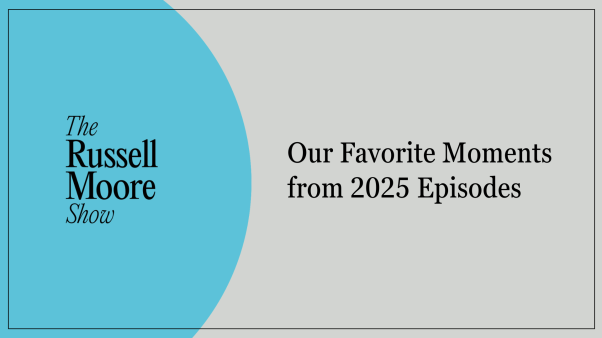On Moral Business: Classical and Contemporary Resources for Ethics in Economic Life,edited by Max L. Stackhouse, Dennis P. McCann, and Shirley J. Roels, with Preston N. Williams (Eerdmans, 991 pp.; $35, paper). Reviewed by Paul de Vries, author and president of the New York Evangelical Seminary Fund, Inc.
One day I had a splendid conversation with an accomplished artist who had recently relocated to Chicago, attracted by that city’s vital artistic community, exquisite galleries and museums, rich ethnic diversity, fine restaurants, fascinating architecture, and the sheer beauty of the lakefront. The only thing about Chicago that disturbed him was the for-profit business that seemed to dominate the city.
So, what was his ideal city? Athens, a city completely devoted to the Muses and other gods of culture, hermetically protected from the dirty business of business.
Athens? Why Athens? How could I break it to him that classical Athens had been such a great locus of culture precisely because it had been the premiere commercial center of its time. The cohabitation of culture and business had been no mere coincidence. How else could the Athenians have afforded the price of culture? Who had fed the artists, after all, but the prosperous business brokers? Everything is connected, whether we like it or not.
In more complex and enduring ways, Christian commitment and biblical spirituality have likewise cohabited the world of labor and commerce. This has been true at least since the shepherds beheld the Lamb of God and the wise men brought gold to Mary and Joseph. Perhaps work and worship have been connected ever since Adam and Eve maintained the holy garden.
As important as the multiple bonds are between godly work and worship, the marketplace and ministry, our commerce and our commitments, these numerous linkages have often been underrated or even ignored. Of course, persisting rivalries exist between godliness and greed—and between devotion to Mammon and to our Master—but even those notorious rivalries are possible only because there are common ties that are being contested. And too often careful attention to those linkages is missing both in Sunday school and in seminaries.
Documentation on these bonds is readily available. However, evidences of these ties are nowhere more accessible in a single location than in the immense anthology of over 150 valuable selections compiled by a team of Christian scholars under the title On Moral Business. The editors have compiled a storehouse of useful resources for professional businesspeople and clergy. This volume will also be useful to students in business schools and seminaries, either as a textbook or a reference book.
The selections in this anthology are mostly from Christian authors, although there are a few from ancient Greece and Rome, Islam, Hinduism, Buddhism, and Chinese and African philosophies. The quality of the readings is consistently high; only a couple of pieces seem out of place.
While the general selection is good, some of the pieces are positively riveting. For example, in “The Gross National Product and the Gods,” Peter Berger provides a profound interpretation of religious conversion as one of the most effective agents of cultural revolution. As his primary example he cites details of the dramatic present impact of evangelical Protestantism on many of the cultures of Asia, Africa, and Latin America. In another article, Dennis Bakke ironically describes why “Values Don’t Work in Business.” The point is that good values do not necessarily enhance profits, although they do grant meaning and significance to our lives and labors. Less edifying are feisty pieces by Martin Luther and Cornel West, demonstrating that not all brilliant theologians make good economists.
There are, of course, disappointments. For example, this anthology includes little or no information about the authors and the historical contexts of the selections. In a few cases there is a brief comment at the beginning of a chapter, but even these references are sometimes incomplete or misleading. Leland Ryken, for example, is introduced as “the widely respected evangelical teacher of business ethics.” He certainly is widely respected, and he is evangelical—but he has never taught business ethics. He writes and for decades has taught English literature at Wheaton College. Later in the anthology, Elmer Johnson is described as having “many years of experience at General Motors.” That phrase does not quite capture the fact that Mr. Elmer Johnson, Esq., was the general counsel and a senior vice president of General Motors. Accurate personal and historical backgrounds on authors and their documents would have contributed much to the reader’s comprehension and respect for the wise insights in the articles. (Another suggestion for the next edition of this anthology, which promises to have a long life: include also a glossary of some of the more technical terms—from business, economics, ethics, and theology.)
Especially disappointing was the piece with which the editors chose to represent Adam Smith (1723-90), the great Scottish theologian, ethicist, and economist who helped define much of what we presently understand as the dynamics of the marketplace. The editors selected a few paragraphs from Book I of the Wealth of Nations, missing completely the profound discussions of economic structural justice and beneficence found throughout the remainder of Books II-V. Moreover, the editors even cut out key paragraphs of the portion from Smith that they selected, so that it remains unclear to the reader that Smith is providing a moral defense of the division of labor: He is demonstrating evidence for the claim that it improves the lives of the least advantaged in society. In fact, throughout the Wealth of Nations, Smith recommends policies that make the growing economic opportunity and wealth more accessible to everyone, especially to the poor.
Our deep commitments will inevitably affect our thoughts and behavior in the marketplace—both in our work and in our roles as consumers. In fact, the more engaged we are in challenging daily and strategic decisions, the more likely we are to recognize the need for help to give meaning and guidance to life. In “A Word to the Reader,” editor Dennis McCann points out that “executives are unusually active in their local churches, with participation rates far higher than the strikingly robust statistics reported for the American population as a whole.”
Perhaps as we enter a postmodern time with fewer prejudices against religion and spirituality, and fewer algorithms to give the appearance of value neutrality, we can be more honest about the actual dynamics of faith and moral value in our marketplaces. Perhaps some of the selections in this anthology can help light the way as we redefine those personal and social dynamics now and in the future.
The editors seem to admit in On Moral Business that we are still missing a unifying vision for moral business itself. This point is generally true. Nevertheless, I think we can discern the shape that such a vision would take. It would be God-centered and would develop four foundational virtues: vigilance or attentiveness, justice or fairness, love or care, and accountability or stewardship. These four virtues are all included in the famous prophetic lines (Micah 6:8):
What does the Lord require of you, [be vigilant]
But to do justice [be fair]
To love kindness [be caring]
and to walk humbly with your God? [be accountable]
These are also the basic four virtues that Jesus taught, and all but the first one he claimed to be the “whole law and the prophets.”
—Be vigilant: “Watch and pray.” —Be fair: “Do unto others as you would have them do unto you.” —Be caring: “Love your neighbor as yourself.” —Be accountable: “Love God with your whole heart, soul, mind, and strength.”
Using different terms, these four are also the key values that are the fabric of Adam Smith’s writings; they are central as well to the work of the Russian economists Nikolai Shmelev and Vladimir Popov and the American economic historian Gerald Sirkin, among others. (For further development of this theme, see Taming of the Shrewd, by Paul de Vries and Barry Gardner [Thomas Nelson, 1992.])
It can be shown that each of these virtues is a problem-solving virtue, a business virtue, an economic virtue, an ethical virtue, and a theological virtue—probably because they are the core godly values, as Jesus taught them. These values unify our thoughts and behavior in the marketplace. These virtues can help organize our discussions of ethics in economic life as well.
Whether the editors recognize it this way or not, On Moral Business edifies these four virtues: It is a treasury of ideas to make us more vigilant about what is happening around us, to make us more fair in our understanding of issues affecting ourselves and others, to make us more caring in our decisions and actions, and ultimately to make us more accountable to God, ourselves, and others.
At one time a vice president of a large American corporation confided in me that he could not convince his own pastor of the value of even occasional business ethics forums in the church. On Moral Business includes a thoughtful and provocative article by that same business executive. I pray that his pastor will now read this book and enter the discussion.
Copyright © 1997 Christianity Today. Click for reprint information.
February 3, 1997 Vol. 41, No. 2, Page 62










